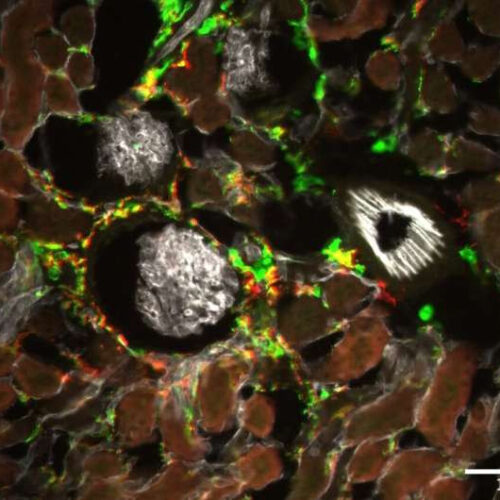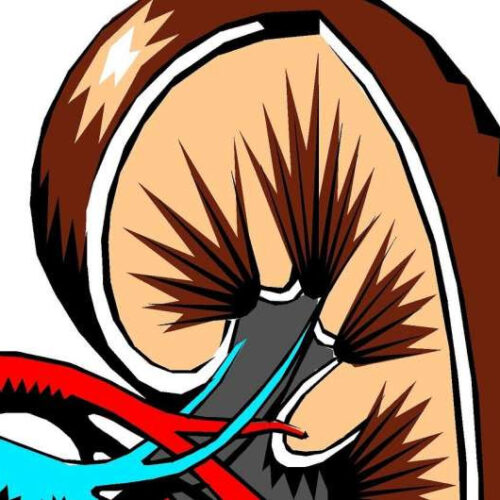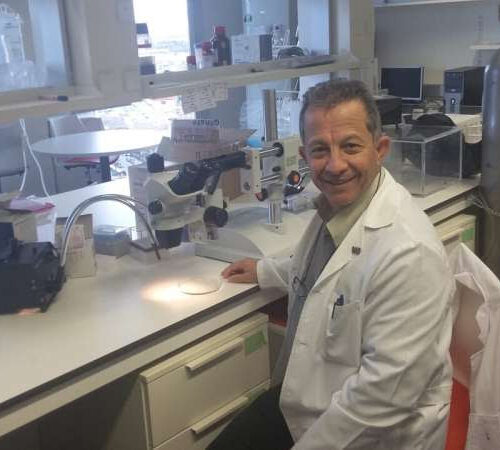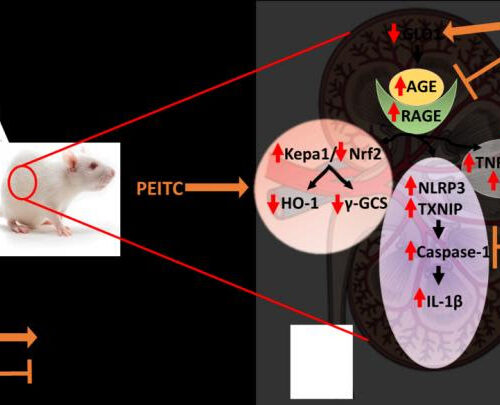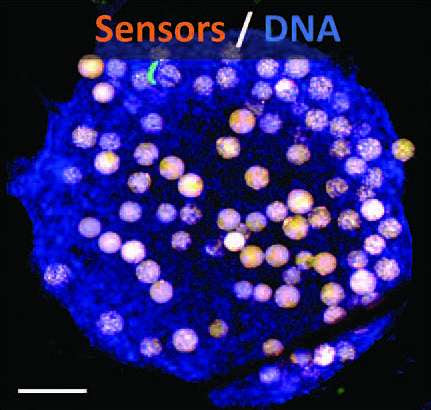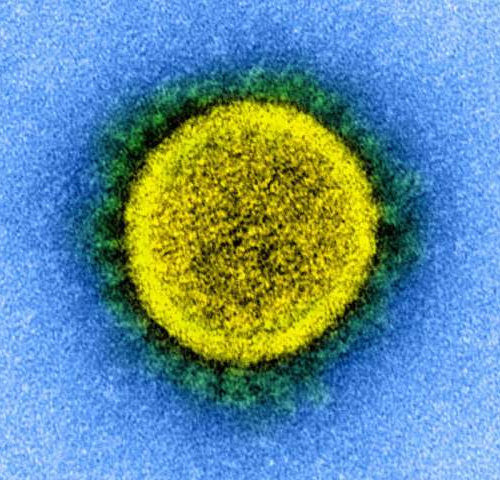by Ludwig Maximilian University of Munich Immunfluorescence of mononuclear phagocytes in the murine kidney. Credit: Barbara Schraml, Stephan Rambichler; LMU The immune system is highly complex. For example, a particular class of cells called mononuclear phagocytes (MNPs) plays important roles in the uptake and disposal of damaged cells, the elimination of invasive pathogens and other foreign...
Tag: <span>kidney damage</span>
COVID-19 long-haulers at risk of developing kidney damage, disease
by Kristina Sauerwein, Washington University in St. Louis Credit: Pixabay/CC0 Public Domain Research continues to mount indicating that many people who’ve had COVID-19 go on to suffer a range of adverse conditions months after their initial infections. A deep dive into federal health data adds to those concerns, pointing to a significant decline in kidney function among...
Melatonin shown to protect kidney damage caused by obesity with diabetes
by University of Granada Dr. Ahmad Agil. Credit: University of Granada Scientists from the University of Granada (UGR), the Hospital Universitario La Paz (Madrid), and the University of Texas (U.S.) have taken an important step in the fight against kidney damage and its progression toward kidney failure, which is closely related to diabesity (obesity with type...
Compound found in some vegetables may reduce diabetes-related kidney damage
EXPERIMENTAL BIOLOGY IMAGE: A SCHEMATIC ILLUSTRATING HOW PEITC TREATMENT AFFECTED INDUCED NEPHROPATHY IN RATS BY MODULATING GLYCATIVE STRESS, OXIDATIVE STRESS AND INFLAMMATORY PATHWAYS. CREDIT: IMAGE COURTESY OF MOHAMED EL-SHERBINY, ALMAAREFA UNIVERSITY. New research conducted in rats suggests a compound that gives some cruciferous vegetables their pungent taste could help to reverse kidney problems associated with diabetes. It...
Kidney-on-a-chip offers clues to prevent kidney damage from essential drugs
by Adrienne Williamson , Medical Xpress A human kidney spheroid with embedded oxygen sensors (orange). Credit: A. Cohen et al., Science Translational Medicine (2021) There are 1.5 million cases of drug-induced kidney toxicity each year in the U.S. Among the usual suspects are cyclosporin and cisplatin, a pair of widely used chemotherapy drugs. Because both...
Physicians give first comprehensive review of COVID-19’s effects outside the lung
by Columbia University Irving Medical Center After only a few days caring for critically ill COVID-19 patients at the start of the outbreak in New York City, Aakriti Gupta, MD, realized that this was much more than a respiratory disease. “I was on the front lines right from the beginning. I observed that patients were...
COVID-19: Exercise may protect against deadly complication
by University of Virginia A review by Zhen Yan, Ph.D., of the University of Virginia School of Medicine, showed that medical research findings “strongly support” the possibility that exercise can prevent or at least reduce the severity of ARDS, which affects between 3% and 17% of all patients with COVID-19. Based on available information, the...
Charcoal-based drug delivery system improves efficacy of common herpes drug
by Sharon Parmet, University of Illinois at Chicago A study led by researchers from the University of Illinois at Chicago has found that combining acyclovir—a commonly prescribed topical herpes medication—with particles of activated carbon improves efficacy of the drug. This new approach allows for less frequent dosing and overall course of treatment while providing some...
NSAID pretreatment impairs immune response in heart failure, worsens heart and kidney damage
Non-steroidal anti-inflammatory drugs, or NSAIDs, are widely known as pain-killers and can relieve pain and inflammation. However, prolonged use raises the risk of heart and kidney failure events. A heart attack causes death of heart muscle cells by lack of oxygen, and it also significantly injures the kidneys. To understand the molecular and cellular mechanisms...
Drinking soda after exercise could damage kidneys – patient education
Downing a cool soft drink after a hot workout can feel refreshing. However, according to the latest research, it may cause further dehydration and interfere with kidney function. A new study looks at soda’s impact on the kidneys Exercise soda A new study looks at soda’s impact on the kidneys. Caffeinated soft drinks that are...

